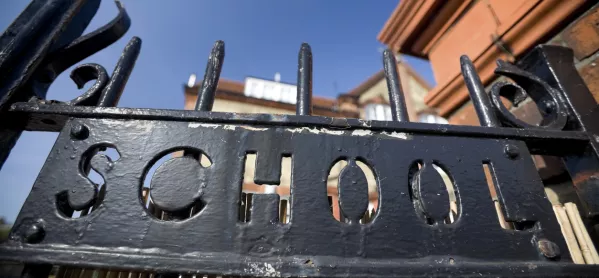The government has released new guidance on how schools can operate a “hub” or “cluster” , but has warned they “could actually increase the risk of spreading coronavirus (Covid-19”).
“You should be alert to the fact that clusters and hubs may increase the public health risk,” it warns.
However, the guidance states that for early years and areas with limited availability, “a cluster or hub model could support necessary provision”.
The advice says that “ideally” a neighbouring school “should be explored in the first instance” when creating a hub but that more geographically spread-out hubs are being considered where they are the only practical form of provision.
It also advises schools to focus on workforce, safeguarding, SEND impact and transport considerations before deciding to go ahead with an hub arrangement:
Primary teachers can support secondary pupils, but need extra consideration
The guidance states that schools must consider the wellbeing of individual staff members when considering a hub or cluster model.
And it adds: “Extra consideration should be given in circumstances where staff are expected to care for or supervise children and young people from a different phase of education, such as primary school teachers supervising secondary age children, or take on different or unfamiliar activities”.
Safeguarding must apply to hubs and clusters
It also states that usual safeguarding procedures must still apply so that no one unsuitable to work with children could work or volunteer in a hub or cluster setting.
“Clusters and hubs should provide a safe environment, keep children safe and ensure staff and volunteers have been appropriately checked and risk assessments carried out as required,” the guidance states.
Extra funding for hub schools is available
Schools planning a hub or cluster will need to agree beforehand how they will share staff and resources, but where the central hub school faces additional costs there is additional financial support available, specifically for increased premises related costs of staying open during holidays; support for free school meals for eligible children not attending school; and additional cleaning.
Schools must consider the impact on pupils’ mental health and SEND students
The guidance notes that pupils in the current challenging circumstances will be best supported by teachers and staff members who they know, and this particularly applies to younger or more vulnerable children.
Therefore any move to a hub that could disrupt this should be mitigated, it advises.
Meanwhile, the DfE warns that moving to a hub model could be particularly challenging for some SEND pupils, such as those with autism.
As such schools and local authorities should carry out risk assessments for children with Education, Care and Health Plans to decide whether pupils are safest at home, school or in another setting.
Where pupils are safer at school, heads and teachers should consider the impact of a hub model on their attendance and welfare carefully.
Pupils could be taken to clusters by minibus
Some pupils may need assistance in travelling to a different site for school, and schools and academy trusts should think about how they might cater for them, for example through use of a school minibus.
If this is not possible, the guidance states schools should ask their local authority for help. Public transport should still be avoided, or used as little as possible, the DfE advises.
Free school meals
Schools that are closed should continue to provide free school meals for eligible pupils “and ensure arrangements are made for any pupils now attending a cluster or hub school”, the guidance says.




